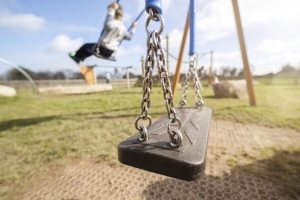Online Resource Explores Latest Child/Parent Stress, Maltreatment Trends
March 22, 2016- Research
The Children’s Data Network (CDN) at the University of Southern California School of Social Work has added two more comprehensive “snapshots” to Connecting the Dots, its online resource for policymakers, public agencies, community groups, the media and others interested in current research about the health and well-being of children, families and communities in Los Angeles County.
Connecting the Dots is modeled on the previously published Los Angeles Children’s Scorecard, but uses a new digital platform to house multi-sourced data and expert insights in one location.
In addition to the two previously released snapshots, “Children and Changing Demographics” and “Childhood Obesity,” the Connecting the Dots platform has added:
- Preventing Child Maltreatment - In Los Angeles County, almost 15% of children are reported to child protective authorities before their fifth birthday. Recent research finds that the effects of trauma and adverse experiences have potential long-term consequences when young children experience neglect, abuse, or serious household dysfunction. While not all reports result in cases of child abuse and neglect, these findings underscore the need for prevention and highlight a number of resources that can provide families with needed help before they are in crises.
- Building Family and Community Strengths - A child’s family and community environments provide the fundamental building blocks for healthy growth and development. Pioneering work with a variety of approaches is shaping understanding of what it takes to strengthen families and communities, including a resident-driven countywide effort to prevent child abuse, which is featured in a documentary short as a part of this snapshot. The new release also includes new details and analysis of the 2014 Los Angeles Mommy and Babies (LAMB) study of more than 6,000 new mothers and their experiences before, during and after recent pregnancies.
“Our carefully curated snapshots pull together and help interpret data, trends and studies about children and family well-being across Los Angeles County, which helps give a more accurate account of what’s really happening in our communities,” said Jacquelyn McCroskey, the John Milner Professor of Child Welfare at the USC School of Social Work and lead facilitator of the Connecting the Dots project. “Our newest snapshots show how strengthening ‘the village’ can strengthen the family unit, as well as reduce the stress, stress reactions and other consequences for vulnerable children and families.”
The Connecting the Dots online resource was created using the LiveStories platform, a data tool that enables users to analyze and share data and insights across organizations. Funded in part by a grant from the California HealthCare Foundation, LiveStories allows faster sharing and more informed decision-making based on timely and relevant data.
Coordinated by the Children’s Data Network, Connecting the Dots is a collaboration of several organizations, including First 5 LA, the California HealthCare Foundation, LiveStories and various other partners from children and family research, health and service-providing entities.
The Los Angeles Children’s Scorecard was a biannual report issued between 1994 and 2008 by the Los Angeles County Children’s Planning Council in partnership with United Way of Greater Los Angeles, the Los Angeles County Department of Public Health, among others. Issued in hard-copy format, the scorecard was a popular and frequently used resource for children and family policy and program decision-makers before it ceased publication in 2008.
Connecting the Dots was made possible through a grant from First 5 LA to the Children’s Data Network at the USC School of Social Work.
To reference the work of our faculty online, we ask that you directly quote their work where possible and attribute it to "FACULTY NAME, a professor in the USC Suzanne Dworak-Peck School of Social Work” (LINK: https://dworakpeck.usc.edu)
